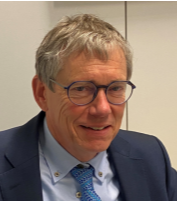
In our third segment, the Platform talks to Willem Olthof, Deputy Head, and Conrad Rein, Policy Officer, at the European Commission. Conrad is also a Co-Chair of the GDPRD.
"FARMS. FOOD. FUTURE" is the podcast of the International Fund for Agricultural Development (IFAD).
The Global Donor Platform for Rural Development is adding its voice to the podcast in a miniseries and bringing a donor perspective to the frontline of food security. IFAD, as the host of the Platform secretariat, had created a special corner of conversation for our members and partners.
Willem and Conrad's segment starts at the 57-minute mark.
Tune into the rest of the podcast which focuses on building resilience in a time of famine. Dr Joseph Awange and IFAD’s Satu Santala discuss the root causes and solutions of famine. Climate specialist Paxina Chileshe looks at resilience-building for rural communities in East and Southern Africa. Two farmers in Kenya explain how they’re dealing with drought. Land tenure specialist Harold Liversage explains how better land tenure protections can reduce conflicts over land and water. IFAD's Recipes for Change campaign takes on two new exciting chefs from India, Chef Zacharias and Chef Dhondy.
Share
Latest Features
27 JANUARY 2026 | 11:00–17:00 CET | In person at Mondrian (CDMA) – Atrium Room (Brussels) and Online | As needs rise and resources decline, trusted data becomes one of the most powerful tools we have — to prioritise, protect critical systems, and act smarter across the humanitarian–development nexus.
Global growth remains resilient, but the OECD warns of deepening vulnerabilities across labour markets, finance, and public debt.
Global growth remains resilient, but the OECD warns of deepening vulnerabilities across labour markets, finance, and public debt.































